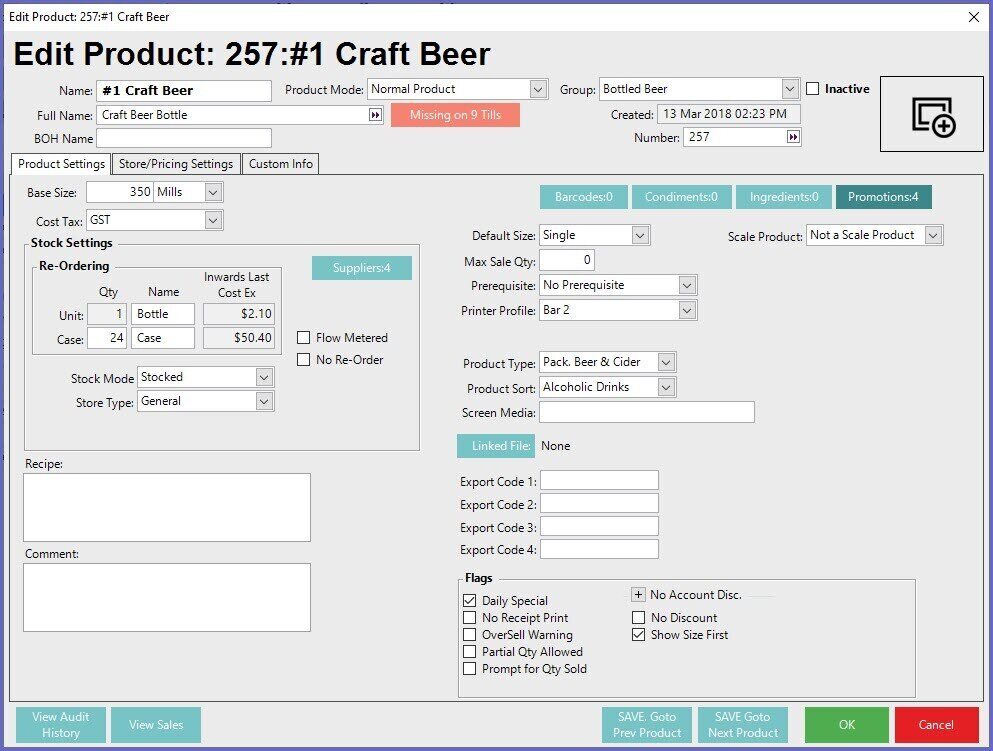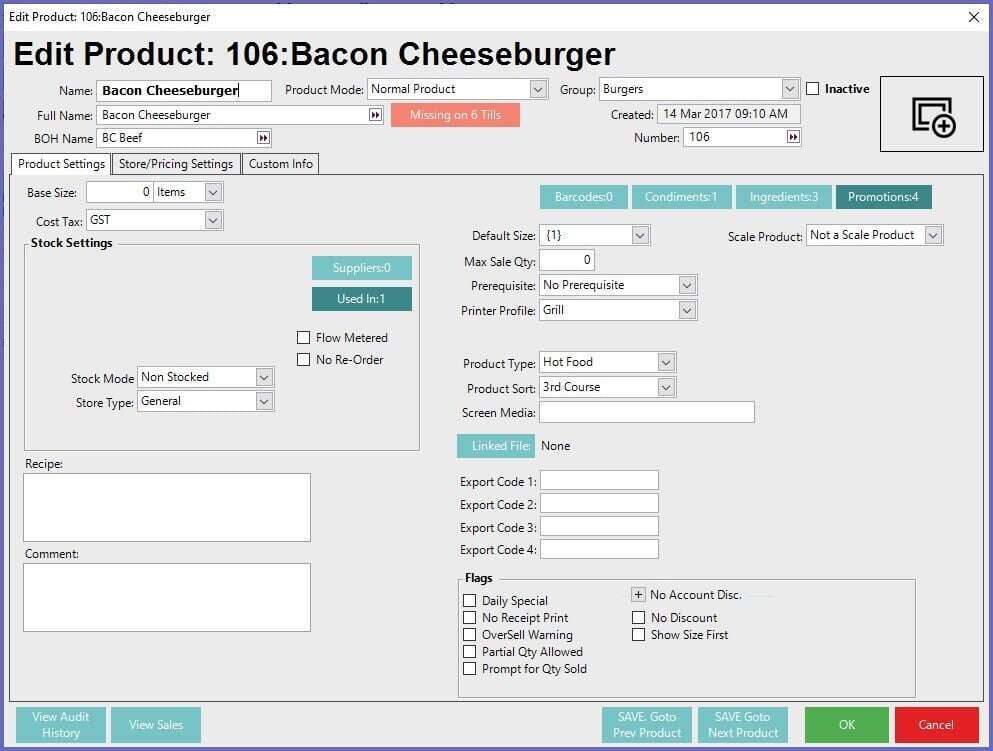📄Stocked vs. Non-Stocked Modes Explained
This article discusses the contrast between the Stock Modes of Stocked and Non-Stocked as they pertain to Products in Bepoz.
Overview
This article focuses on the Stocked and Non-Stocked modes.
It is not advised (and in most cases not permitted by the System) to change a Product's Stock Mode after it has been used within the database, e.g., Purchased, Transferred, Manufactured, etc.
"Stocked" Stock Mode
- Any Product that is Purchased and can physically be Transferred, Counted, have its Quantity adjusted, etc. in the same unit that it is Purchased in is considered to be a Stocked Product
- There are dozens -- if not hundreds -- of examples of Stocked Products; some major categories include the following:
- Packaged Beverages
- Ingredients for menu items; e.g., produce, proteins, dairy, poultry, etc.
- Dry/canned goods

- Notice that for a Stocked Product, we have the "Re-Ordering" fields available for configuration
- These allow us to maintain the Purchase unit/s and standard Quantities of those Units that the Stocked Product is Purchased in
- These same Units and Case sizes are then subsequently used throughout the system when placing Purchase Orders, Transferring Stock, counting for Stocktakes, etc.
- Stocked Products should not have any Ingredients; if it is a Product that is also sold, it is typically sold as-is; i.e., as the same base Unit it's Purchased as or a portion of the Base Size such as beverages that are Purchased in Cases/Bottle but can be sold in milliliters or ounces
"Non-Stocked" Stock Mode
- In contrast to Stocked Products, Non-Stocked Products are Products that need to exist in the database typically for Selling purposes
- In order for a Product to be sold, it must be added to a KeyMap and in order for that to happen, a Product needs to exist in the database even if it is not Purchased as it is sold -- think of a pizza that is made up of ingredients; the ingredients are purchased (these would be Stocked Products), but the pizza itself is made to order and therefore is Non-Stocked
- In this pizza scenario, having the Non-Stocked Product in the database not only allows us to add it to a KeyMap to be sold, but it also allows us to record data and report on the Product
- It’s advised to configure Non-Stocked Products' Ingredient Products (which would typically be Stocked Products) for accurate Quantity on Hand figures of the Product's Ingredients; e.g., any time a Non-Stocked Product is sold, the Ingredient Quantities will be decremented from Stock
- Common examples of Non-Stocked Products include made-to-order cocktails, menu items, meal deals, and other package products that are added to the Product list to be sold

- Notice that for a Non-Stocked Product, the "Re-Ordering" section is removed since these Products are not Purchased
